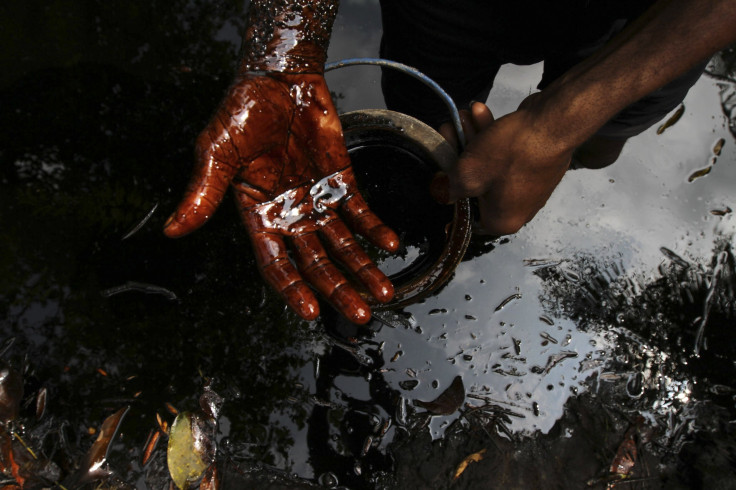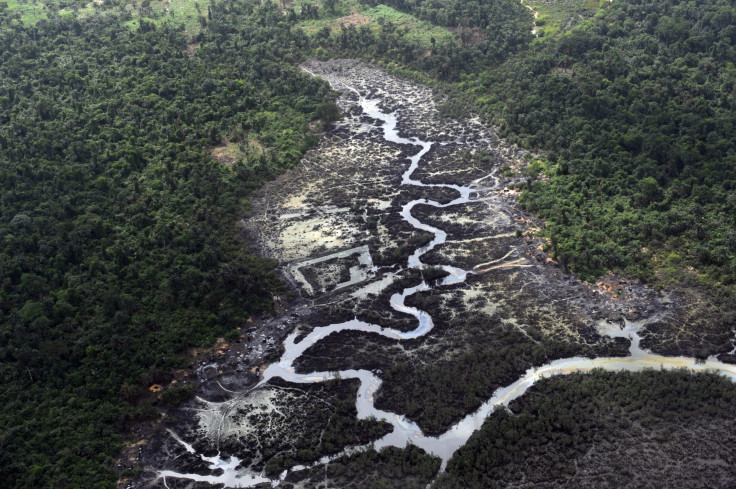Nigeria Oil Spills: Shell's Claims Of Having Cleaned Up Contaminated Sites 'Blatantly False,' Says Amnesty

In 2011, the United Nations Environment Program (UNEP) released a report containing detailed findings about how oil spills in the Ogoniland region of southern Nigeria had contaminated drinking water and land, wrecked the fishing industry and destroyed the health and livelihood of local people. Since then, oil giant Royal Dutch Shell Plc -- which stopped drilling in Ogoniland in 1993 following massive unrest in the region -- has repeatedly claimed to have cleaned up the spill sites.
However, according to a new report by Amnesty International -- based on field research conducted by Amnesty International and Nigeria’s Centre for Environment, Human Rights and Development (CEHRD) in Ogoniland between July and September 2015 -- these claims are “blatantly false.”
“In field investigations at four of the spill sites UNEP identified as highly polluted in 2011, Amnesty International and CEHRD found all four remain visibly contaminated in 2015, even though Shell says it has cleaned them,” the rights group said, in a statement accompanying the report. “The investigation demonstrates this is due to inadequate clean-up, and not new oil spills.”
For instance, in one of the sites -- Shell’s Bomu Well 11 -- the investigators found blackened soil and layers of oil on the water even 45 years after the spill, despite the company saying it cleaned the area twice -- in 1975 and 2012. In three other sites that had been certified as clean by Nigeria’s National Oil Spill Detection and Response Agency, researchers found contaminated soil and water in areas close to where people live and farm.

“This is just a cover up. If you just dig down a few meters you find oil. We just excavated, then shifted the soil away, then covered it all up again,” a contractor who had been hired by Shell told Amnesty.
However, a spokesman for Shell’s Nigerian unit rejected the findings of the report, and said that it remained committed to cleaning up all spills from its facilities, “irrespective of cause.”
“This is equally the case in Ogoniland, despite the fact that we ceased producing oil and gas there in 1993,” spokesman Bamidele Odugbesan reportedly said.
The report also accused the Nigerian government, which, earlier this year, outlined plans to accelerate the clean-up of spill sites, of failing to regulate the oil industry.
“The government of Nigeria is currently failing to fulfill its duty to protect the human rights of people living in the Niger Delta, including by ensuring that they enjoy their human right to a remedy and proper clean-up,” Amnesty said, in the report. “People have a right to know what kinds of pollutants they are exposed to.”
© Copyright IBTimes 2025. All rights reserved.






















